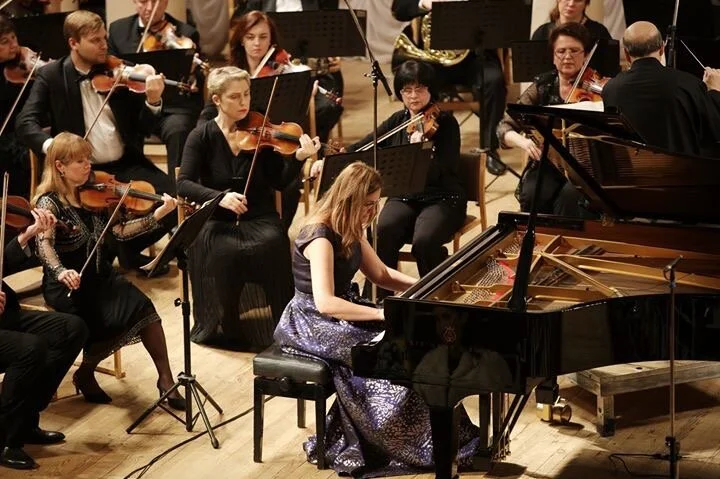Reviews
A Pianistic Conquest: The Complete Chopin Études
By Anthony Tommasini, The New York Times
Published: June 8, 2009
For serious pianists, from advanced students to seasoned artists, working on the Chopin études is an essential, lifelong endeavor. In popular perception, Chopin may be a dreamy Romantic who brought poetic flights and rhapsodic freedom to his extraordinary piano pieces. But he also had a serious pedagogical side. For nearly seven years, from his late teens to his mid-20s, he analyzed the art of playing the piano and channeled his thoughts into two books of études, 12 in each. These pieces explore every dimension of piano technique: arpeggios, double octaves, double thirds, rolled chords, leaps, spiraling passagework, repeated chords and much more. If you can play the 24 Chopin études, you can play anything written for the piano. Recitals that offer the complete Chopin preludes, or waltzes, scherzos, ballads, nocturnes and such, are fairly common. But it is not often that a pianist plays the complete Chopin études in a single program. Taken together, the 24 pieces last only about an hour. But there is no more intimidating hour of music in the piano repertory.
So it was well worth attending the recital by the pianist Irena Portenko, who holds degrees from the Kiev Conservatory in her native Ukraine and a doctorate from the University of Michigan, at Weill Recital Hall on Saturday, presented by Artists International. Ms. Portenko played through Chopin’s études with a relaxed and resourceful technique. In some of the works her playing was dutiful, lacking in color and spontaneity. At times she sounded a little underpowered and pale. No doubt she held back to conserve her energy. If her performances were missing some sweep and fire, her playing was admirably honest and clear-textured.
There are classic recordings by legendary pianists who performed the Chopin études in concert, including Alfred Cortot’s elegant, if imperfect, accounts from the 1930s, and the tasteful, technically exquisite recordings by Claudio Arrau from the ’50s. It might seem out of character, but Rudolf Serkin, the masterly interpreter of central Germanic repertory and never a flashy technician, sometimes played the second book of Chopin Études (Op. 25) complete in recital. Incredibly, at 13, the prodigious Chinese pianist Lang Lang played the complete Chopin études for a major recital in Beijing. The surprising no-show here was Arthur Rubinstein, who performed and recorded (sometimes many times over) almost the entire Chopin repertory except for the études. “I played many in concerts,” Rubinstein wrote in the second volume of his autobiography, “but left out those to which I felt I couldn’t do justice.”
Chopin ingeniously turned each of these technical studies into an imaginative composition. But to present them as engaging works, a pianist must utterly conquer the technical challenges. Some of the hardest études are those that, to nonpianists, may seem the least brilliant. On the surface the Étude No. 2 in A minor seems straightforward and impishly charming. As the right hand plays a fleet line of 16th-notes that creeps chromatically up and down the keyboard, the left hand blithely plays an oompah chord pattern. But on the first of every four notes in those right-hand runs, the pianist must fill out the harmony with two more notes to complete a chord, relying heavily on the outer, weaker fingers. Only pianists who have worked on this étude understand how difficult it is.
Ms. Portenko played it at a lithe pace, with notable clarity in the scale patterns and a gentle lilt in the left-hand chords. She was at her best in the more tumultuous études, including No. 12 (“Revolutionary”), with its punishing runs for the left hand, and No. 23 in A minor (often called “Winter Wind”), with its cascading right-hand passagework and stern theme in left-hand chords. Whatever the shortcomings of her performances, Ms. Portenko pulled off a feat that puts her in a select company.

